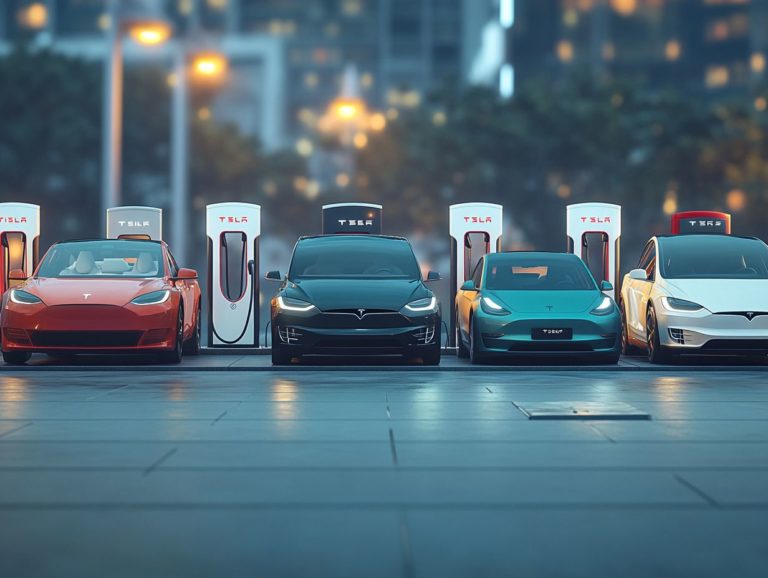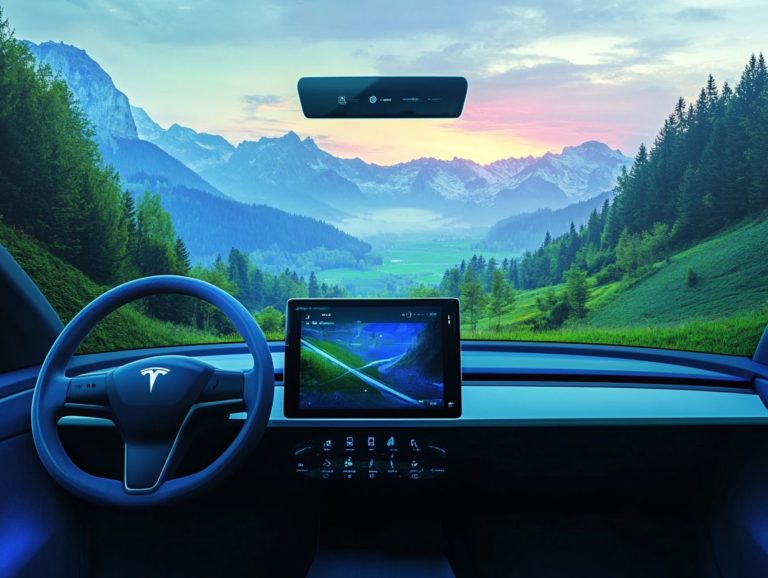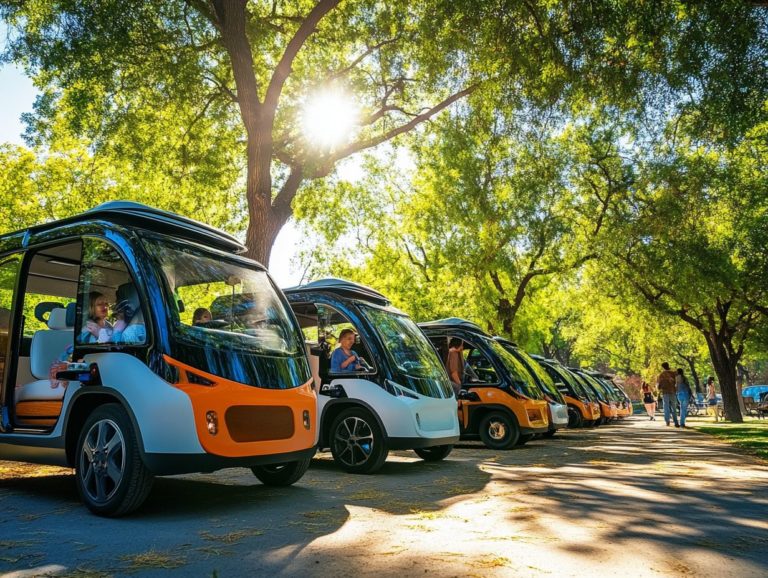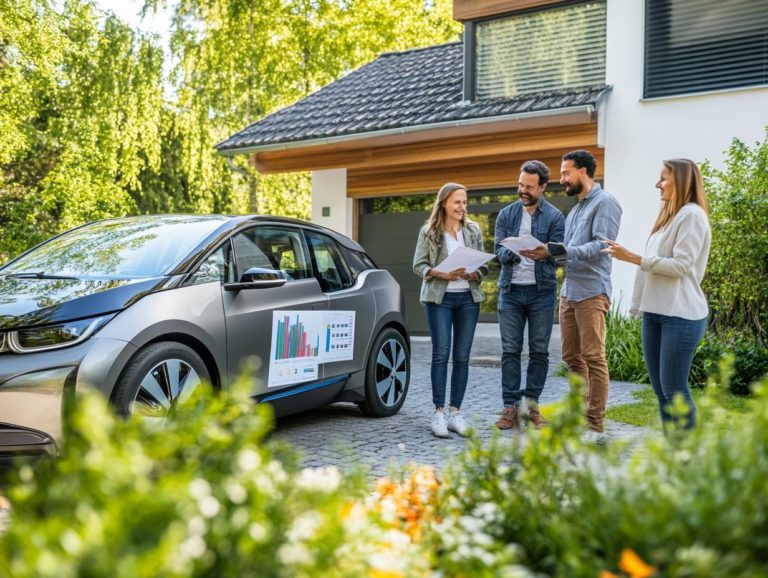How to Prepare for Your First EV Purchase
Considering a transition to an electric vehicle (EV)? You’re in good company! The surge in EV popularity is largely driven by their environmental advantages and the cost savings they offer over conventional vehicles.
Before you dive in, it’s essential to weigh several key factors. These include your budget, the availability of charging infrastructure, and selecting the model that best aligns with your lifestyle.
This article serves as your comprehensive guide. It will equip you with all the knowledge you need to feel confident and fully prepared for your first EV purchase.
Contents
Key Takeaways:
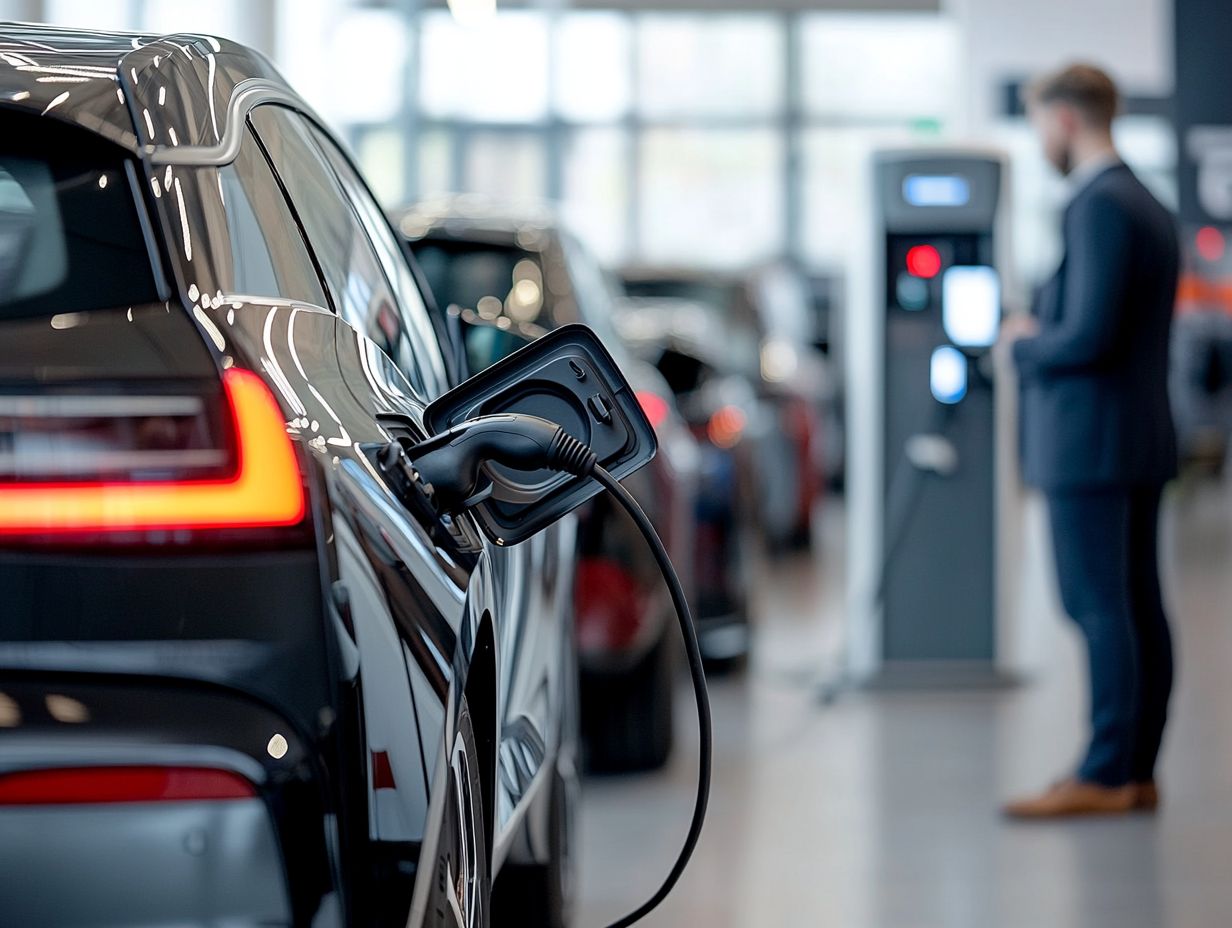
- Consider the benefits of EVs over traditional cars, such as lower emissions and cost savings, when deciding to make the switch.
- Before purchasing an EV, take into account factors such as budget, charging infrastructure, and range to ensure it fits your lifestyle and needs.
- Prepare your home for an EV by installing a home charging station a faster way to charge your EV at home and familiarizing yourself with the different types of charging options available.
Why Choose an Electric Vehicle (EV)
Opting for an Electric Vehicle (EV) is rapidly gaining traction among environmentally conscious individuals and those keen on minimizing maintenance costs typical of traditional vehicles!
With technological advancements leading the charge, models such as the Tesla Model S and Model 3, along with the Hyundai Kona, present a fusion of sustainability and compelling features tailored to diverse driving requirements. These include impressive long-distance travel capabilities and superior battery longevity.
The demand for sustainable transportation is growing. It’s important to consider the benefits that EVs offer in comparison to conventional cars.
Factors to Consider Before Buying an EV
Before you commit to purchasing an Electric Vehicle (EV), it’s essential to consider several key factors. For a comprehensive understanding, refer to the ultimate checklist for EV buyers, as these will greatly influence your experience and satisfaction as an owner.
Consider the cost of electricity, the availability of charging infrastructure, and any potential savings from the EV Tax Credit. Gaining a clear understanding of your budget, along with the long-term maintenance costs tied to owning an EV, will enable you to determine its affordability and how well it fits into your lifestyle. To further enhance your knowledge, be sure to check out the top 7 mistakes to avoid when buying an EV.
Budget and Cost Comparison
When you’re considering an Electric Vehicle (EV), it s crucial to conduct a comprehensive budget and cost comparison. This means looking beyond the purchase price to include ongoing expenses like maintenance and the cost of electricity for home charging.
At first glance, the upfront costs of acquiring an EV may seem higher than those of traditional vehicles, largely due to the advanced battery technology involved. However, be sure to factor in various EV Tax Credits that can significantly reduce your initial investment.
In many instances, these incentives can bring the overall purchase price down to a level comparable with conventional cars. Plus, you’ll likely enjoy long-term savings from reduced fuel costs and lower maintenance expenses, as EVs typically require less upkeep.
Don t overlook the availability of charging stations! Having convenient access to charging options is essential. It can alleviate range anxiety and make the experience of owning an EV even more practical.
Charging Infrastructure and Range
Understanding the charging infrastructure and range of Electric Vehicles (EVs) is essential as a potential buyer. This directly impacts the feasibility of long-distance travel and the convenience of home charging options.
Home charging solutions, usually involving the installation of a Level 2 charging station, allow you to recharge your vehicle overnight. This ensures that you start each day with a full battery.
Public charging stations, which include both Level 2 chargers and rapid charging options like DC fast chargers, are perfect for those times when you need to recharge while on the move.
Take, for example, the Tesla Model 3 it can travel over 350 miles on a single charge and gain up to 170 miles of range in just 30 minutes at a supercharger station!
Similarly, the Ford Mustang Mach-E boasts impressive charging times and flexibility, making it a highly appealing choice for consumers like you who prioritize both performance and convenience.
Ready to explore your EV options? Start your journey now!
Preparing Your Home for an EV
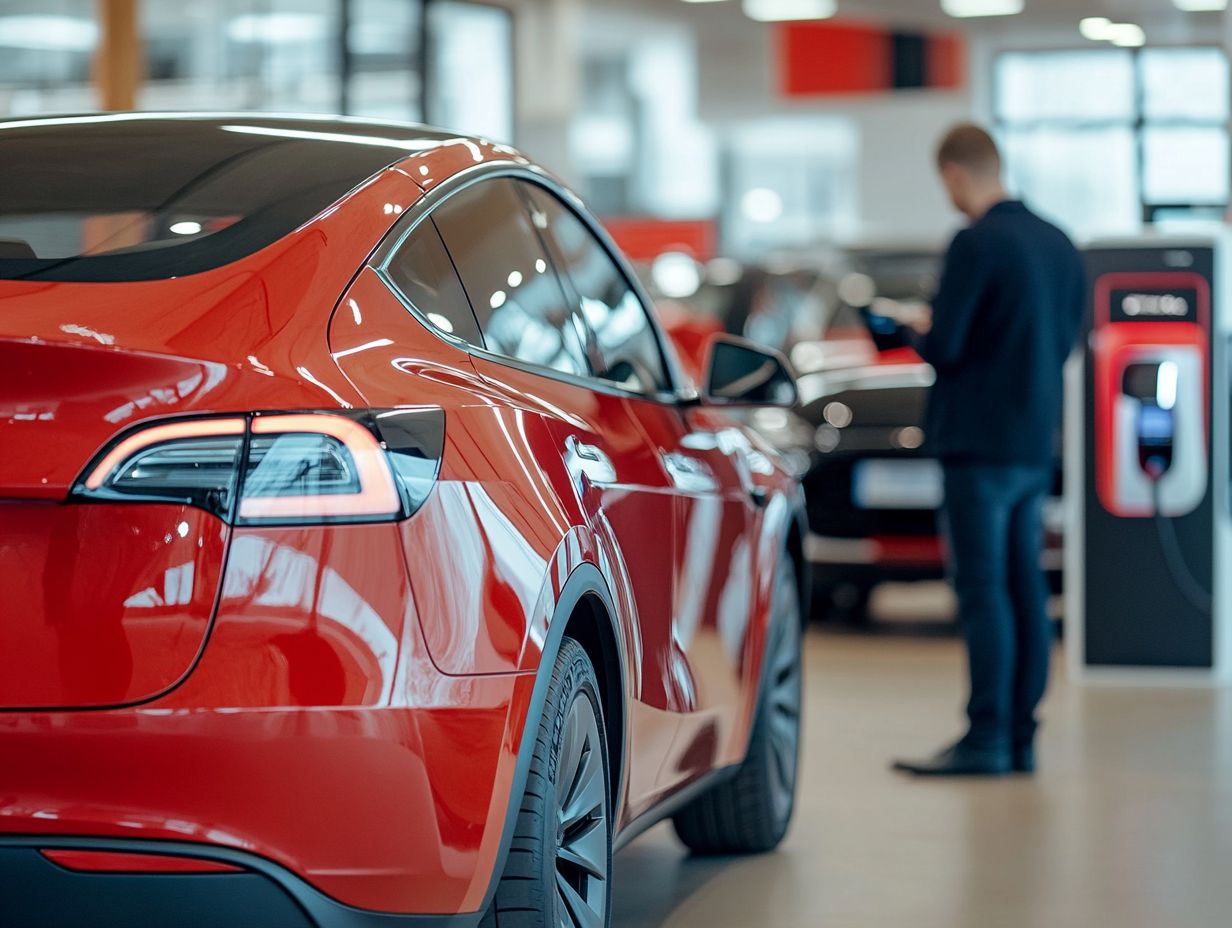
Preparing your home for an Electric Vehicle (EV) requires a thoughtful assessment of your current electrical setup. This helps you determine whether a dedicated home charging station is necessary.
Investing in a charging station makes your experience smoother and helps you save on electricity costs.
With various options available, including installations from reputable providers like Pod-Point and Chargemaster, you can ensure that your EV infrastructure perfectly matches your daily driving requirements.
Installing a Home Charging Station
Installing a home charging station for your Electric Vehicle (EV) is crucial for convenient charging and maximizing your vehicle’s potential.
It also enhances the infrastructure of the EV community.
Start by checking if your home can support a charging station. Look at your circuit breaker to confirm you have enough amperage.
Once that’s sorted, choose from recommended charging station models like the ChargePoint Home Flex or the Tesla Wall Connector for better charging efficiency.
Check local regulations or permits for your installation to avoid any surprises.
A dedicated home charging station offers unmatched convenience, allowing you to charge overnight without the hassle of finding a public charging facility.
Understanding EV Charging
As an EV owner, knowing about charging options is crucial. It includes home charging, public charging, and rapid charging methods to fit your unique driving needs.
Different Types of Charging and How to Use Them
EV charging presents a variety of options: home charging, public charging stations, and rapid charging.
Home charging is the most convenient choice for daily use. You can plug in your vehicle overnight and wake up to a fully charged battery.
Public charging stations come with varying speeds and accessibility. Costs can fluctuate based on location and service type, so plan ahead.
Rapid charging stations are a game-changer for long-distance travel. They provide an 80% charge in about 30 minutes.
Brands like Tesla and ChargePoint offer a range of charging solutions, ensuring your charging habits align with your driving needs, whether at home or on the go.
Choosing the Right EV for Your Needs
Pick an EV that fits your driving habits perfectly. This process involves evaluating different vehicle brands and their specific EV models, and understanding what to know about leasing vs buying an EV.
By doing so, you can strike the perfect balance between features, range, and maintenance costs. This ensures your investment meets your lifestyle and preferences.
Comparing Models and Features
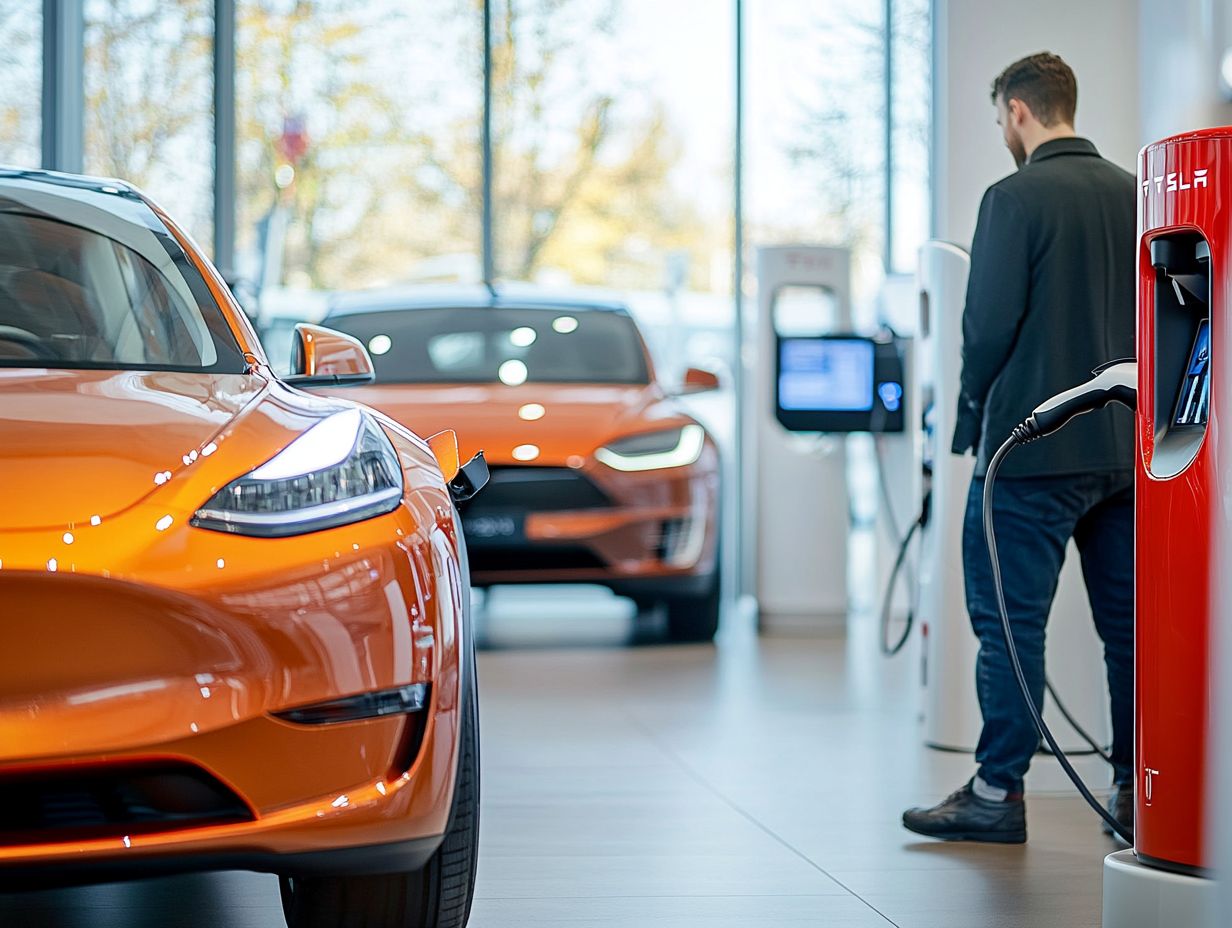
When you re comparing different Electric Vehicle (EV) models, it s crucial to consider various factors like vehicle brands, specific features, performance metrics, and user reviews. Each of these elements plays a pivotal role in determining what fits your individual driving preferences best.
Take the Tesla Model S, for instance. With an impressive driving range of up to 405 miles, it s your perfect companion for exciting long road trips! Then there s the Model 3, which strikes a fine balance between performance and affordability without compromising on range.
If you re leaning towards something more compact, the Hyundai Kona may be your ideal match. This SUV is great for city driving, offering efficient charging capabilities and versatility that city dwellers will appreciate.
For those who crave luxury, the Jaguar I-PACE combines elegance and performance, making it ideal for anyone who desires a stylish ride packed with advanced technology features. Understanding these unique characteristics will help you pinpoint the vehicle that aligns perfectly with your lifestyle and needs.
Financing and Incentives for EVs
Navigating financing options and available incentives for Electric Vehicles (EVs) can greatly ease the burden of upfront costs, especially when preparing for EV maintenance appointments, transforming ownership into a more attainable goal.
Programs like the EV Tax Credit, which offers tax savings for electric vehicle buyers, and the Office of Low Emission Vehicles (OLEV) grant can significantly help. Along with favorable insurance quotes specifically designed for EV owners, you can enhance both your financial outlook and driving experience.
How to Afford Your New Electric Vehicle
Exploring various options for affording an Electric Vehicle (EV) can enable you to navigate the financial landscape effectively. This ensures you make a sound investment while reaping the benefits of programs like the EV Tax Credit and OLEV grant.
By understanding the financing solutions available to you, such as loans with competitive interest rates and flexible lease agreements that minimize upfront costs, you can significantly ease the financial transition to greener transportation.
Local dealerships play a vital role in this journey. They provide invaluable insights into financial incentives and connect you with suitable lenders. This collaboration not only makes owning an EV more attainable but also positions it as an eco-friendly choice that aligns with your budgetary goals.
Frequently Asked Questions
What is an electric vehicle (EV)?
An electric vehicle is a type of vehicle that is powered by an electric motor and rechargeable batteries, instead of using gasoline or diesel fuel like a traditional car.
Why should I consider purchasing an EV?
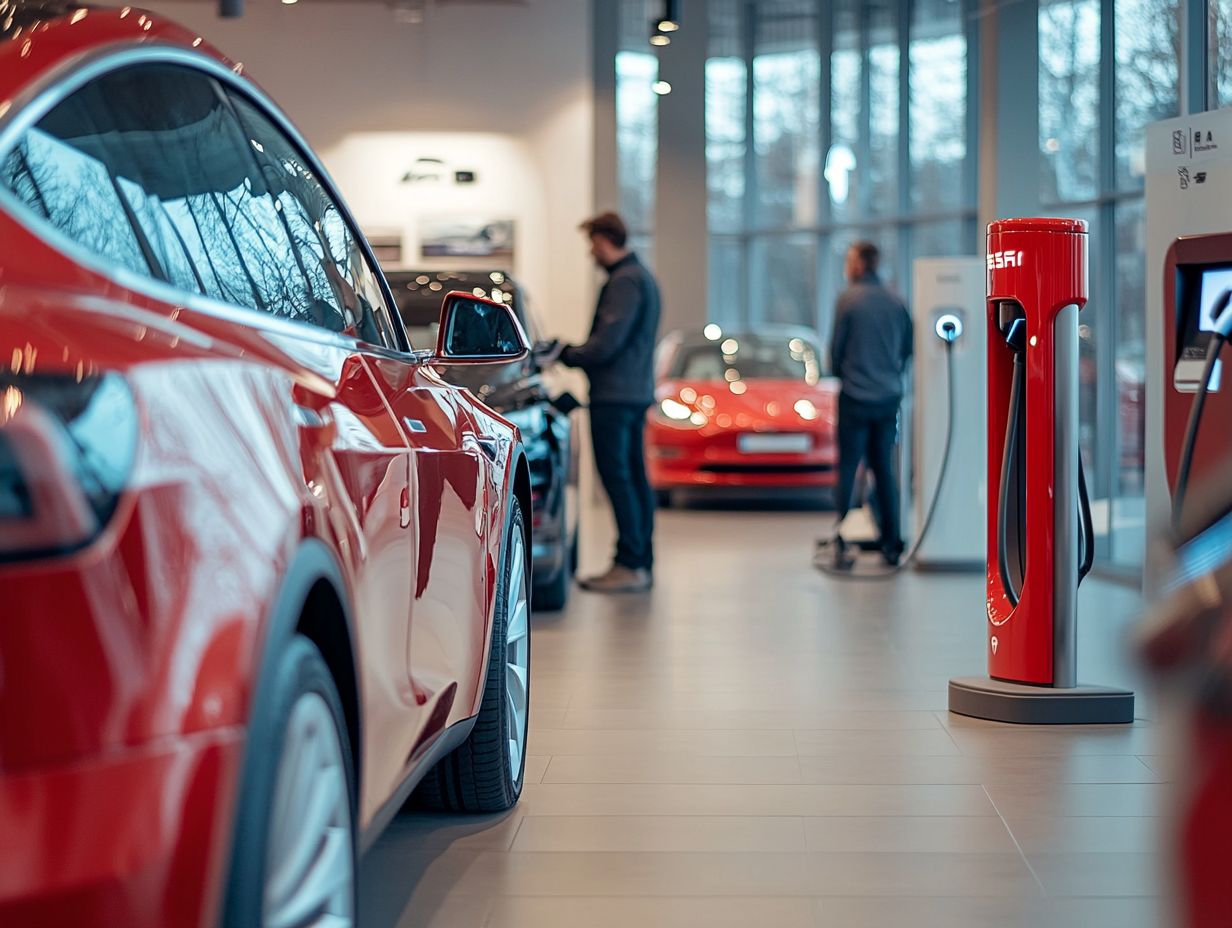
There are many reasons to consider purchasing an EV, including environmental benefits, cost savings on fuel and maintenance, and potential tax incentives or rebates.
How do I know if an EV is right for me?
Consider your daily driving habits and needs. If you have a long commute or frequently travel long distances, an EV may not be the best choice for you. However, if you primarily drive shorter distances and have access to charging stations, an EV could be a great fit.
What do I need to know about charging an EV?
It’s important to understand the different types of charging options available for EVs, including Level 1 (standard household outlet), Level 2 (240-volt outlet), and Level 3 (DC fast charging). You should also consider the availability of charging stations in your area and if you have a reliable way to charge your vehicle at home.
How can I prepare my home for an EV?
If you plan on charging your EV at home, you may need to install a charging station. Be sure to have an electrician check your home’s wiring and electrical capacity to ensure it can handle the additional load.
We encourage you to explore your financing options today to drive home in your new EV!
What other factors should I consider when preparing for my first electric vehicle purchase?
Besides charging options and preparing your home, it’s important to research different electric vehicle models. This helps you find the best fit for your needs and budget.
Don t forget to consider insurance costs and potential maintenance. Understanding these factors will help you make a confident choice!


